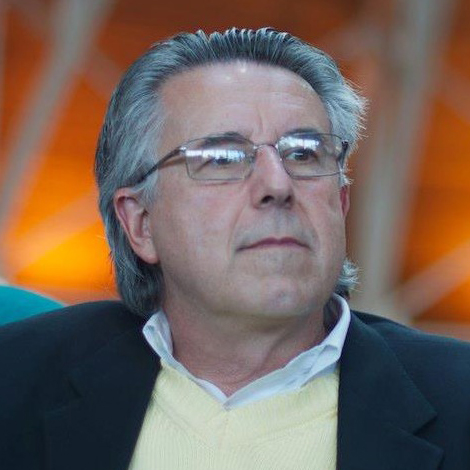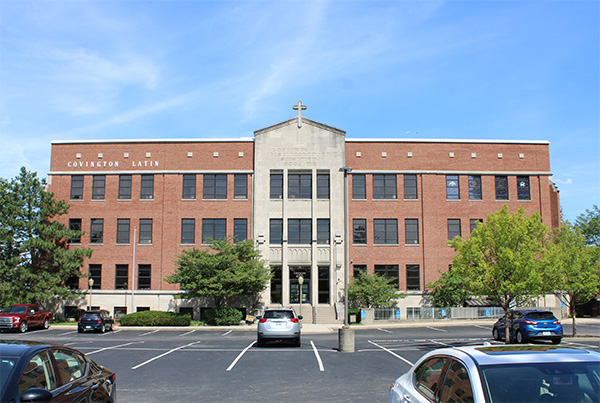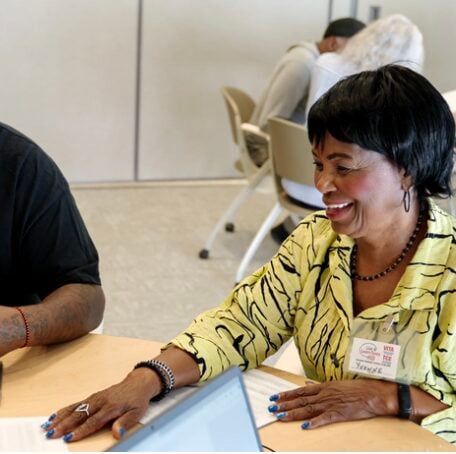(Editor’s note: This is the second of a two-part Q & A with Kentucky historian Dr. James Klotter. View part one.)
By Steve Flairty
NKyTribune columnist
Flairty: Much has been written about state icons Daniel Boone and Abraham Lincoln. Would you point out some of the common inaccuracies reported about each?
Klotter: While Boone played an important role in the early history of the state, he owes his worldwide fame to his ghostwriter John Filson, who included Boone’s “autobiography” in his 1784 book. But others, like Simon Kenton, played an equally important role in the story. They just lacked someone to tell their story, their history, as well.
As a writer noted, as the airways filled with bad Boone stories, ”To television-starved Americans, Daniel Boone looked like Fess Parker, wore a coonskin cap, and single-handily made Kentucky safe for Colonel Sanders fried chicken empire.”

In fact, Boone never wore a coonskin cap, was 5’8” tall, as opposed to the 6’4” height of the actor who portrayed him and came to Kentucky chiefly to claim land. Other corrections of the Boone image (are)-he was a legislator, was a slaveholder, and was friendly with many Native people.
The Lincoln image is stronger but still has some flaws as well. But the biggest misconception concerns his Kentucky- born wife, but that’s another story. In Lincoln’s case, he was, like his hero Henry Clay, a self-made man. But he was a contradiction—a man could craft some of the greatest passages in the English language was better known initially as a teller of dirty jokes. He needed his humor to ward off the deep depression he often felt.
Another contradiction concerns his racial views. His strength is that he grew. At first he said his views on slavery matched those of Henry Clay. But Clay would compromise anything to keep the Union together. Lincoln, however, recognized that there are some evils too great to compromise on— in his case, the expansion of slavery. And so, the war came. And in that conflict, he did not treat all states equally. He deemed Kentucky so crucial to Union success that he was very patient with the commonwealth. He proved very skillful as president, despite the rough and raw image he brought with him to the White House.
Flairty: How would you describe the impact Thomas D. Clark, your esteemed predecessor as state historian, made on the study of Kentucky’s heritage?
Klotter: Dr. Clark was a good historian, but he was an even better ambassador for history over his more than a century of life that began the year the Wright Brothers first flew.
He wrote fine books-my favorite is his book on southern country stores. But, boy, did he speak and advocate for state history! I’ve given nearly a thousand talks to Kentucky audiences but I suspect I am far behind his record. Whether it be to a gathering of a dozen lost souls on a snowy night to important individual legislators to an audience of a thousand of the faithful, you could depend on Tom Clark to entertain, to educate, to scold a bit, and to show the importance of history to every person who was present. We need more Tom Clarks.
Flairty: The second edition of your book, A New History of Kentucky, published in 2018, provides, it says, “significantly revised content with updated material” from its earlier edition from 1997. If a third edition would be published soon, what conceivably might be a few items added, or revised, after 2018’s edition?
Klotter: Thankfully, a new third edition of A New History is more than a dozen years away. But I am constantly gathering information.
Here’s a couple of themes that I would stress more. One, the declining role of two former staples of the economy— tobacco and coal— and the state’s growth as a manufacturing place.
Tobacco is grown on less than a thousand farms in the state versus some 60,000 three decades ago and accounts for only 3% of agricultural value. Similarly, only 4,000 Kentuckians work in coal mines-less than 1% of the workforce and a drastic decline from the 65,000 of a century before. But the small amount of coal produced in Kentucky largely stays in the state and helps produce cheap electricity, which may be a factor in making Kentucky a manufacturing state, ranking 22nd in the nation.

And two, the continuing strength of the Republican Party and, at the same time, the commonwealth’s turn from an economic emphasis on political issues to a moral one, represents a significant shift as well. Some queries asked in the second edition are still relevant. Questions still remain:
Will Kentucky stress unbridled individualism, or a spirit of caring for others and for community?
Will it let the rich get richer and the poor poorer, as has occurred over the last five decades, or will it devise ways to help the less fortunate more?
Will the commonwealth continue to underfund its schools and teachers, or will it support them and feed the minds of the future?
Will the state accept short-term profits, or will it protect those things that made it unique, including its natural beauty?
Will Kentucky disregard the health concerns of its citizens, or will it concentrate efforts and improve the life of its people?
Will it see one lifestyle, one religious tradition, and one way of doing things as the only way, or will it be accepting of diversity in all those areas?
Will the commonwealth waste its resources and despoil its environment, or will it use its natural assets wisely and well?
Will state politicians ask, ‘How does this help my party?’ or will they ask, ‘How does this help my commonwealth?’
Will Kentucky officials follow their own selfish ends, or will they do the people’s business?
Will its citizens vote casually and infrequently, or will they work to understand issues and participate in the system?
Will the commonwealth be complacent, satisfied, and content, or will it be questioning, searching, and inquiring in its outlook?
Will it follow, or will it lead? Will it repeat the past, or will it learn from history?
Flairty: As a modest person, it might be difficult for you to answer this one. Looking back over your years in service chronicling and interpreting Kentucky’s past, for what contributions are you most proud to have offered?
Klotter: I’m most proud of my efforts in four areas. First are my books. As a historian wrote, ‘Research is endlessly seductive. Writing is hard work. But it brings a moment on Olympus. It an act of creation.’ Hopefully the ideas created and expressed in those twenty or so books will live on after I’m gone.
Second is the quarter century of work done at the Kentucky Historical Society — editing the journal, supporting new projects, getting the funding and starting the History Center in Frankfort, and much more.
Third would be the talks I have given, on a myriad of subjects, in over 90 Kentucky counties. I really liked telling the state’s story and meeting the people —all people—who are making history today.
And fourth, I greatly enjoyed my twenty years of classroom teaching at Georgetown College. Shaping young minds and being shaped by them is both invigorating and fun. And history should be about fun—and the future: ‘We must love our grandchildren more than we love ourselves.’ I have had a great life and, hopefully, have made a difference.


















Once again, a terrific article. I, too, had always thought of Dr. Clark as Kentucky’s foremost historian. My recent reading is changing my mind.
Also, I will be sending the words of Dr. Klotter’s from this article to my senator and representative.